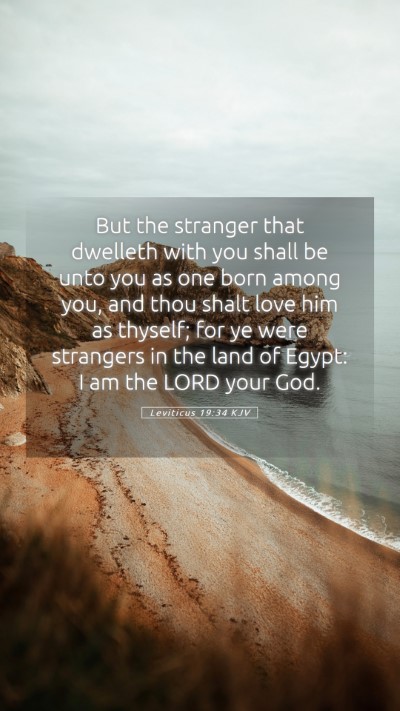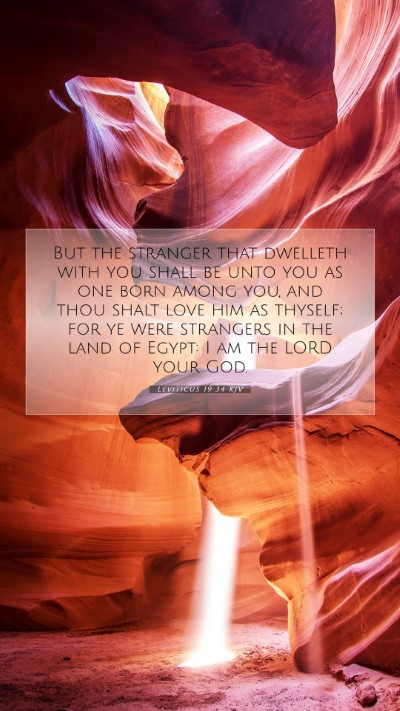Bible Verse Commentary: Leviticus 19:34
Verse: “But the stranger that dwelleth with you shall be unto you as one born among you, and thou shalt love him as thyself; for ye were strangers in the land of Egypt: I am the LORD your God.”
Overview: This verse emphasizes the importance of loving others, including those who are not part of one’s own community or nation. It encourages compassion and empathy rooted in the historical experience of the Israelites in Egypt.
Meaning of Leviticus 19:34
This scripture calls for a profound understanding of human dignity and relationship, central to the theological message of love and inclusion found throughout the Bible.
Insights from Public Domain Commentaries
-
Matthew Henry:
Henry emphasizes the principle of charity, advocating for treating the stranger with as much care and kindness as one would a fellow countryman. This reflects God's heart for inclusivity and love across cultural boundaries.
-
Albert Barnes:
Barnes highlights the historical context of Israel as strangers in Egypt. He explains that God’s command to love strangers reflects a reminder of their humble origins and the grace they received. It is a call to empathy and remembering one’s past.
-
Adam Clarke:
Clarke interprets this command as an extension of the moral law, reinforcing the idea that love for one’s neighbor transcends ethnic or cultural identities. He notes the significance of treating others with respect and kindness, echoing Jesus' teachings on love.
Theological Significance
Leviticus 19:34 acts as a guiding principle for ethical behavior, urging believers to consider how they treat outsiders, signifying a broader application of God’s love in community life.
This verse shares themes with Jesus’ teachings in the New Testament, particularly in His parables about love and mercy (e.g., the Good Samaritan). It is a direct reminder that all humanity is interconnected, deserving compassion and respect.
Application in Daily Life
- Embrace Inclusion: Consider how this command applies in our daily interactions, particularly in diverse settings.
- Community Engagement: Actively seek to love and understand those who may feel marginalized or different.
- Reflect on Personal Experience: Remember how your life experiences shape your views on kindness and acceptance.
Cross References
- Exodus 23:9: "And thou shalt not oppress a stranger; for ye know the heart of a stranger, seeing ye were strangers in the land of Egypt." - Similar emphasis on the treatment of strangers.
- Matthew 22:39: "And the second is like unto it, Thou shalt love thy neighbor as thyself." - Jesus reiterates the command of love.
- Galatians 3:28: "There is neither Jew nor Greek, neither bond nor free, neither male nor female: for ye are all one in Christ Jesus." - Affirmation of unity in Christ beyond social divides.
Bible Study Insights
This verse serves as an excellent focus topic for bible study groups and can provoke meaningful discussions about how to interpret Bible verses related to love and community.
Utilizing bible study resources and bible study guides can enhance understanding and practical application, making the principles taught in this verse resonate in our communities today.
Conclusion
Leviticus 19:34 is more than a historical command; it is a timeless edict urging believers towards a lifestyle of love and acceptance, rooted in an understanding of shared humanity. Through scripture analysis and biblical exegesis, we learn not only the significance of this verse but also how it profoundly intersects with the core message of the entire Bible.


